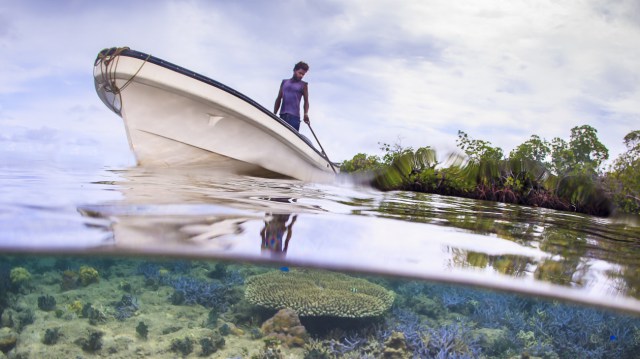Plantations International News

By Justine E. Hausheer. Originally released at The Nature Conservancy.
Can little protected areas still offer large benefits for both individuals and also nature?New study from Papua New Guinea shows that in your area looked after marine areas effectively secure grouper spawning events. And also with moderate expansions, these secured places could dramatically increase their preservation benefits.Local Defense for Regional Good facets Understood to the regional area as manang, the brown-marbled grouper rules king on the coral reef of northeastern Papua New Guinea(PNG). Developed in delicious chocolate and also white, these pinnacle reef killers could get to sizes of 1 meter in addition to think about as high as 10 kilos.”This kinds is important for both office fisheries as well as the regional area, “says Pete Waldie, a water environmentalist as well as PhD prospect at James Cook University’s ARC Center of High quality for Reefs Reef Studies.While a vital food source, the grouper are similarly at risk of being overfished– – they’re a long-lived, slow increasing fish that takes years to reach sex-related growth. The types is presently provided as near threatened by the IUCN.Just offshore of Dyual Island, in PNG’s New Ireland District, much more as compared to a thousand grouper from 3 selections compile yearly between March as well as July to duplicate in precisely just what’s referred to as a fish generating gathering. To secure their resource and even supplement curb overfishing, the neighborhood community, Leon, partnered with The Nature Conservancy to establish a little in your location took care of aquatic area, or LMMA, in 2004. Designated as a no-take area, this 0.2 square kilometer patch of reef would certainly permit the fish to reproduce undisturbed.A brown-marbled grouper. Picture © Mark Priest A 0.2 km 2-shielded area sounds extremely tiny, especially when contrasted to the enormous aquatic protected locations scattered across the world’s seas. Yet water conservation works a little bit in various means in Melanesia– – bigger is not a lot much better. Areas in PNG own the land, reef, and even other natural
resources next to their standard residence , a system acknowledgedas traditional tenure. In several locations that ownership system is added ruined to different clans within the location, each having the commitment to care for their patch of coral reef exclusively. Tiny LMMAs– – generally balancing around 1 kilometres 2 throughout Melanesia– – suit this period system as well as prevail throughout the location.”If a location owned and even runs 10 kilometers of reef as well as they safeguarded all their standard angling premises individuals would definitely deprive, due to the fact that there would be no place to go fishing,”clears up Rick Hamilton, manager of The Nature Conservancy’s Melanesia program.The dimension of any sort of location’s angling grounds is additionally limited by workforce– – Waldie states that 90 percent of the fishing is do with hand-carved dugout canoes, so angling facilities are limited by just exactly how much somebody could possibly paddle in one day.Previous research study by Conservancy scientists revealed that no matter of its small measurement, setting up the LMMA(recognized in your location as Bolsurik)directly caused more grouper in the water. Nevertheless was securing the creating aggregation website adequate to assure a healthy and balanced population as well as safeguard the grouper year-round? Photo © Mark Clergyman Acoustic Telemetry, Pasta Tags, and even also History To reply to these concerns, Waldie along with his coworkers used a combo of innovative acoustic telemetry as well as additionally low-tech tagging to figure out specifically where the grouper were throughout spawning and likewise merely just how much they distributed in between
. Royal Society Open Science.After 2 years, Waldie and his partners had sufficient data to recognize merely how as well as where the grouper were moving in relation to the LMMA. Their outcomes were published today in Royal Culture Open Scientific research study. “We containeded that the LMMA is doing specifically simply what


The article Abide by that Grouper: What Migration Information Tell USA Worrying In your area Took care of Marine Preservation showed up first on Plantations International.
